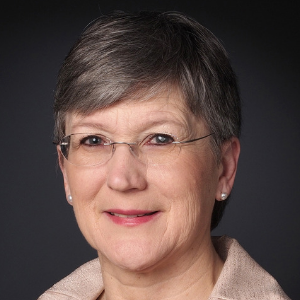Asset-Mapping Community Resources for Entrepreneurs
The service area for Patrick Henry Community College (PHCC) in Martinsville, Virginia, represents the birthplace of many companies that are household names. We are the birthplace of Bassett Furniture (of HGTV acclaim), Hooker Furniture, Ridgeway Clocks, Fieldcrest Textiles (the towels in our linen closets that never wear out), Stanley Furniture, Pannill Textiles, American Furniture, the Martinsville Speedway (the NASCAR track older than NASCAR itself), and dozens of others. When we began an entrepreneurship boot camp program with our local chamber of commerce in our rural Virginia community (with accompanying business plan and live-pitch competition), our early concerns were whether or not we had strong enough support services to prop up new ventures until they could become fiscally viable. Because the region had struggled economically for a couple of decades, a quick-to-judgment conclusion may have been “of course not.” However, as our planning team started to design, coordinate, and map out the program’s implementation, we began very exciting adventure of discovery right in our own back yard.
We currently have three progressive entrepreneurial programs, each serving a slightly different audience but designed to feed into the next. Scheduled over 30 days of immersion into the world of all things entrepreneurial, our Big IDEA Challenge is a PHCC-exclusive initiative that focuses on product and technology development in our FabLab/maker space facility—the Thomas Dalton IDEA [Innovate.Design.Engineer.Accelerate] Center in Uptown Martinsville, VA. In partnership with the Martinsville-Henry County [MHC] Chamber of Commerce, and its affiliated economic progress board, we lead Success MindSET© training as part of StartUp MHC for idea-to-early concept businesses in retail, service, product and technology market sectors. This is an eight-week training program with a business plan submission and a live-pitch competition before a panel of judges. The final prong of our entrepreneurship strategy is GrowMHC, a four-week program for entrepreneurs who are already in business. It also ends with a business-plan submission and a live-pitch. All have cash prizes and/or support awards.
For each session of the programs, we invite a local entrepreneur, a subject-matter expert, and/or an organization or government office representative to speak to the campers. The list continues to grow as we discover new needs, interests, and gaps in information: accountants, attorneys, insurance agents, health inspectors, fire marshals, tax and business licensing clerks, social media and marketing professionals, safety experts, human resources managers, realtors association staff, and tourism directors. We plan to add an expert in personal financial literacy next year.. Although we cover it briefly in our introduction to Success MindSET©, we will partner with the United Way to deliver its program to participants. Solid personal financial practices increase the chances of solid business financial practices, and we want to emphasize this connection and “success link” [a topic that I plan to discuss in detail in a future blog].
At the conclusion of each of these programs, our participants consistently express their surprise and amazement about the sheer volume and quality of community resources available to them. They simply did not know what we actually had. They also note that the community support providers were very approachable, accessible, and helpful.
The obvious community resources were, in fact, obvious. Our partnering organization, the chamber of commerce, brought its programming, services, and member businesses and industries to the entrepreneurs’ treasure chests, even if they were not quite ready to use them. Offering a booth or admission at no charge, to the “Fast Track Business Expo” provided entrepreneurs with the opportunity to introduce their new businesses to the community or even simply attend - many for the first time - and meet other business owners. Our local SCORE chapter and our regional SBDC have also provided anchor support for our entrepreneurs.
Many communities may inadvertently, overlook the wealth of resources they can rally to serve an upstart-start-up group of entrepreneurs and innovators. Our journey of mining and mapping the assets that bring value to our growing corps of entrepreneurs has been encouraging and exciting, and we have discovered - as the community college partner in this adventure - that our college benefits directly from this asset-mapping strategy.
As a community college president, I pose two questions daily as we go about decision making throughout our institution: What is in the best interest of the student? What is in the best interest of the communities we serve? Taking a close look at how this entrepreneurial initiative as a whole addresses these two questions has been quite enlightening. What we have discovered is that asset-mapping community resources positively benefits our entrepreneurs, whether in the exploratory, start-up or early-growth stages, and that it strengthens our college and its mission as a whole.
While we work to operate effectually, and entrepreneurially, as a comprehensive community college, we benefit by the new, enriched and renewed relationships we are building with these community resource providers. These relationships serve to strengthen our college as a whole, but more importantly, our students, faculty and staff individually, as we learn more about the breadth and depth of our community, and our community learns more about the breadth and depth of our college.
We believe that this “crazy quilt,” (as brilliantly described by our sagacious inspirer, Dr. Saras Sarasvathy [Darden School at University of Virginia] , provides ongoing support, encouragement, and collaboration as our entrepreneurs move forward throughout the latest venture, and more importantly, into their future innovative journeys. Patrick Henry Community College enjoys the opportunity to be a block or two in this crazy quilt, as we thread ideas, innovation and the entrepreneurial spirit into the very fabric of who we are as a community.
President
Patrick Henry Community College

